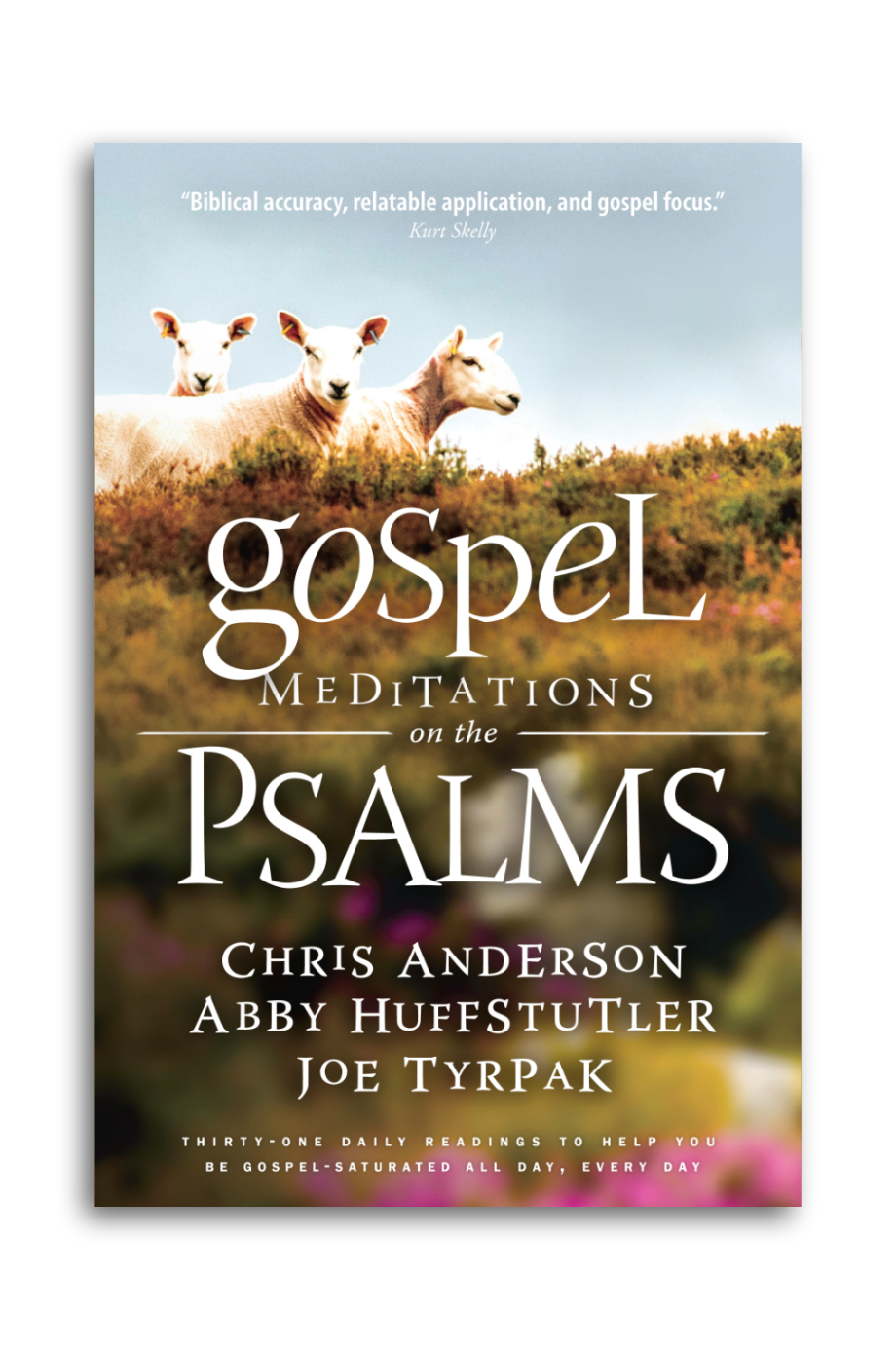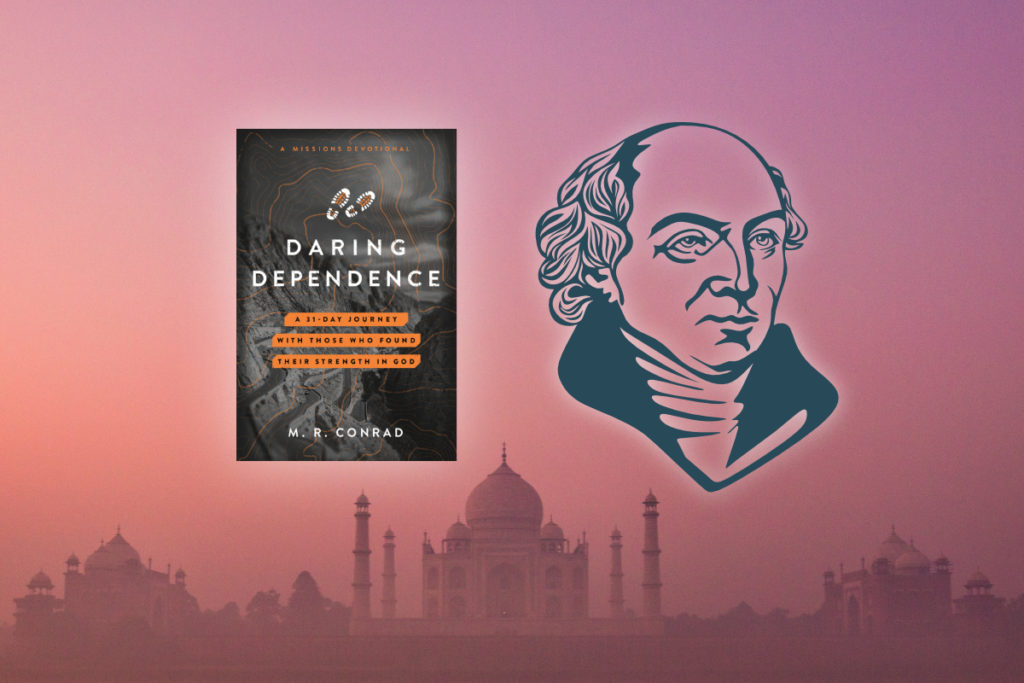This post by Abby Huffstutler comes from Gospel Meditations on the Psalms (Day 15: “I Know God Is for Me”).
Fear is a universal human experience. We like to describe certain exceptionally daring people as “fearless,” but the reality is that even those individuals fight their own phobias—whether spiders, dentist visits, enclosed spaces, public speaking. . . . Everyone has things that terrify them or trigger anxiety.
But I love that Psalm 56 is just as universal when it offers us help for our fears without qualification. Psalm 56:3 does not limit which fears God can handle, as if He were only big enough to help with particular terrors for particular people. It just says that when we are afraid—for whatever reason—we can trust God. And because God knows we all fear things all the time, He has this psalm ready for us. “When your fear comes, do this: Trust Me.”
One of David’s habits of faith was to pray when in trouble.
David shares a helpful personal illustration—a story of how he trusted God when he was fearful, “when the Philistines seized him in Gath.” The details are in 1 Samuel 21: David is on the run, but he has foolishly sought safety in an enemy camp, so now he’s a captive—definitely scary.
I’m never worried about being captured by a neighboring army! But I can read Psalm 56 and say, “What do I learn from David’s fear management?” Answer: I learn that one of David’s habits of faith is to pray when in trouble. Here are the details—eight ways to pray when I’m scared.
1. Lord, I need grace, please. David starts with a petition (v. 1). He asks the Lord for favor, help, grace.
2. I am afraid. Even though God knows our situations, it is helpful for us to tell Him our hard realities. David says that he is scared because people (Saul? Philistines? others?) are against him. He feels trampled (v. 1); oppressed (v. 2); frustrated that people are twisting his words to mean things he didn’t intend (v. 5); and fearful of their evil intents (v. 5), their attacks, and their plans to kill him (v. 6). Verbalize to God all the specifics of your fears.
3. God, I completely trust You. David affirms a couple things to the Lord (vv. 3, 4): that he is trusting God to help him and that he is not going to continue being afraid. Sometimes affirming our faith out loud to God helps us to believe and act.
4. What can people do, really? David asks a rhetorical question (v. 4). Answer: People can’t do anything to truly threaten my life—not when I have God as my Protector. Tell God your worst-case scenarios and let Him assure you that, because of Jesus, you’re secure forever.
5. Please judge them, God. David could go full revenge-mode here, but he leaves the judgment of his enemies with God (v. 7). This is a great biblical example of how to deal with those who wrong us (Romans 12:19).
6. God, You know. David repeats truth to himself during this mess: God, You know my journey, my sorrows, my tears (v. 8). God knows everything we face. Jesus sympathizes with your difficulties (Hebrews 4:15–16). And He cares (1 Peter 5:7).
7. I know You are for me, God. David reminds himself that he is not alone—that God is with him and for him (v. 9). This is big: the presence of God in my life trumps my fears (Hebrews 13:6; Romans 8:31–32).
8. God, You’ve rescued me before. David remembers the past (v. 13). If Jesus has saved you from sin, believe He can deliver you from present fears.
My trust in God can be expressed and enhanced when I pray. And my fears can be confronted and conquered when I pray. I have a God-designed prayer plan for dealing with the things that repeatedly make me afraid: Psalm 56.
Let the gospel provide a safe place of trust in God when you are tempted to fear.
Explore the whole book!
The Psalms are balms. They have brought help and healing to God’s people for over 3,000 years. Scripture’s 150 inspired songs give us words to pray during times of joy and sorrow, triumph and loss, worship and conviction. They are so vibrant, so beautiful, so real. This 31-day devotional presents short studies of thirty psalms, exploring their connection to the gospel and their direct application to our everyday experiences—our ups and downs, our highs and lows.














